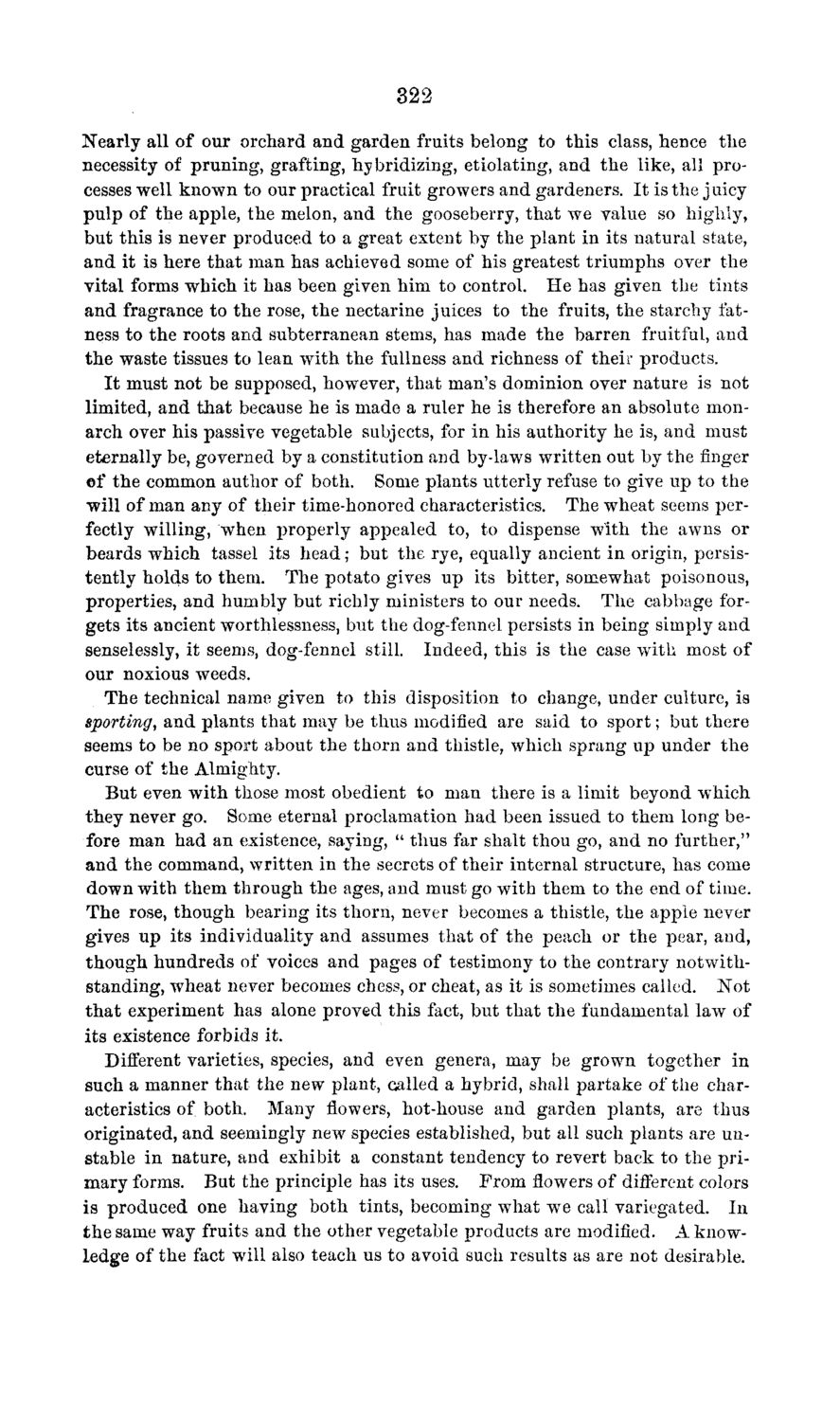| |
| |
Caption: Board of Trustees Minutes - 1869
This is a reduced-resolution page image for fast online browsing.

EXTRACTED TEXT FROM PAGE:
322 Nearly all of our orchard and garden fruits belong to this class, hence the necessity of pruning, grafting, hybridizing, etiolating, and the like, all processes well known to our practical fruit growers and gardeners. It is the juicy pulp of the apple, the melon, and the gooseberry, that we value so highly, but this is never produced to a great extent by the plant in its natural state, and it is here that man has achieved some of his greatest triumphs over the vital forms which it has been given him to control. He has given the tints and fragrance to the rose, the nectarine juices to the fruits, the starchy fatness to the roots and subterranean stems, has made the barren fruitful, and t h e waste tissues to lean with the fullness and richness of their products. I t must not be supposed, however, that man's dominion over nature is not limited, and that because he is made a ruler he is therefore an absolute monarch over his passive vegetable subjects, for in his authority he is, and must eternally be, governed by a constitution and by-laws written out by the finger ef the common author of both. Some plants utterly refuse to give up to the will of man any of their time-honored characteristics. The wheat seems perfectly willing, when properly appealed to, to dispense with the awns or beards which tassel its h e a d ; but the rye, equally ancient in origin, persistently holds to them. The potato gives up its bitter, somewhat poisonous, properties, and humbly but richly ministers to our needs. The cabbage forgets its ancient worthlessness, but the dog-fennel persists in being simply and senselessly, it seems, dog-fennel still. Indeed, this is the case with most of our noxious weeds. The technical name given to this disposition to change, under culture, is sporting, and plants that may be thus modified are said to sport; but there seems to be no sport about the thorn and thistle, which sprang up under t h e curse of the Almighty. But even with those most obedient to man there is a limit beyond which they never go. Some eternal proclamation had been issued to them long before man had an existence, saying, " thus far shalt thou go, and no further," and the command, written in the secrets of their internal structure, has come down with them through the ages, and must go with them to the end of time. The rose, though bearing its thorn, never becomes a thistle, the apple never gives up its individuality and assumes that of the peach or the pear, and, though hundreds of voices and pages of testimony to the contrary notwithstanding, wheat never becomes chess, or cheat, as it is sometimes called. JSTot t h a t experiment has alone proved this fact, but that the fundamental law of its existence forbids it. Different varieties, species, and even genera, may be grown together in such a manner that the new plant, Galled a hybrid, shall partake of the characteristics of both. Many flowers, hot-house and garden plants, are thus originated, and seemingly new species established, but all such plants are unstable in nature, and exhibit a constant tendency to revert back to the primary forms. But the principle has its uses. From flowers of different colors is produced one having both tints, becoming what we call variegated. I n t h e same way fruits and the other vegetable products are modified. A knowledge of the fact will also teach us to avoid such results as are not desirable.
| |